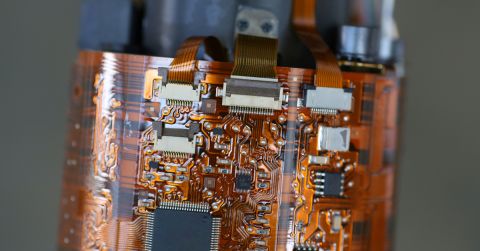Edgewater Research: High Performance Analog Supply Chain Digest - August 2023
Component Insights – August 2023

Important Disclosures in the Appendix
Continuation of Softer Trends, China No Longer Seen Rebounding in 2023 while Auto Continues to Moderate
Note: This is not the full Insights report, if you are interested in receiving the full report, please click here to schedule a call to discuss the requirements.
Key Takeaways:
- Midway through 3Q, shipments are seen as having a slow start, tracking flat to down low-single digit, vs. targets of flat.
- Bookings seen as remaining weak across geo/end markets. Expectations for a recovery pushed out again to 1Q24 from 4Q23 prior.
- China seen as still disappointing QTD. Expectations for demand coming back in 2023 rapidly dwindling, except in EV.
Top 4 Channel Comments:
- Consensus in the industry is still shifting. Most see the rebound in order/shipments as pushed out to late 1Q24, more likely 2Q24 from 4Q23 previously. At the same time no one is seeing a doom and gloom scenario. Macro is holding up and consumption is so much more diverse. At worst this looks like a longer than typical correction lasting 8-10 quarters.
- Asia is getting hit hard because China is not adding any meaningful stimulus. We don’t see China coming back at all this year even with the good EV component demand that is expected in 2H.
- During the shortage period, Auto OEMs were cutting checks for tier 1 to subsidize and cover for the price increases upfront – now that shortages are over, OEMs are telling tier 1s to go find their savings, so clearly that is putting pricing pressure.
- Asia is bad/no rebound, EMEA is literally in an ICU after a car crash – and Americas is down but would call a stable down.
Other Datapoints of Interest
- Current downturn trend seen as persisting into 2H; supply chain more optimistic it can avoid a hard landing; we are less convinced.
- Extended summer shutdowns are seen driving sharp, seasonal decline in Europe. Expectations for a strong and seasonal Sept. seen as diminishing in recent weeks, creating downside risk for the quarter in the region.
- Auto feedback continues to turn more mixed; suppliers seen as enforcing NCNR/LTSAs trying to smooth demand. Tier 1s seen attempting to push short lead times orders while building buffer of recently constrained/golden screw parts.
- Auto end demand seen moderating in the West and still muted in China on consumers sticking to a wait-and-see approach.
- UAW strike seen as likely, but Ford/GM/Stellantis not seen hedging production due to sufficient inventory at US dealers.
- UAW strike noted creating oppty for OEMs to back out of LTSA/NCNRs, leaving questions for post-strike LTSA negotiations.
- Datacenter, Comms, Industrial demand unchanged M/M, projected soft in 2H. PC/CE demand seen as remaining muted in 3Q.
- Inventory is still a primary concern; some signs of progress in distribution in Asia, but digestion still projected through YE.
- TI still seen as price aggressive, particularly in Auto and China. Share gains ongoing from Asian peers, limited from Western.
- Analog Devices seen as accelerating cost measures, forcing employee time offs, and idling factories in Aug due to weaker bookings/shipments.
- Pricing is still relatively stable with pockets of concessions; suppliers seen as preferring to lower utilization than price.
Conclusion
High Performance Analog fundamentals continue to moderate in July and into August, with China/APAC fundamentals remaining challenging, EMEA entering typical summer seasonality and general stability in the Americas. While EMEA is normally seasonally slower in the summer months, concerns are growing that the seasonal recovery in September has the potential to disappoint as inventory is viewed as elevated and the macros remain challenging. Similarly in China/APAC, while we have seen signs of near-term stabilization, albeit at a very low level, it is becoming increasingly likely that this region will unlikely see a rebound through year-end. While the supply chain is cautiously optimistic that the industry will experience a “soft landing,” we remain more cautious on this scenario as demand across most end markets remain muted and the strongest markets like Industrial and Automotive are experiencing inventory pressures as well as signs of near-term demand moderation.











 Back
Back
